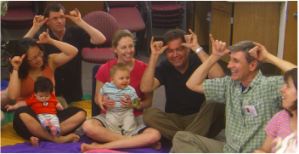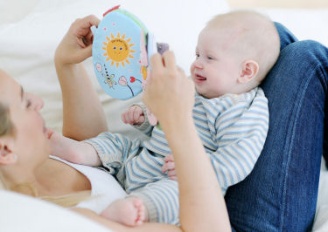
Bringing up children is a challenge. No it’s not: it’s a heart- wrenching, tear- filled, laughter- inducing journey of a challenge. Sometimes I feel that I’m not up to it (like it’s a choice!), and then I’m nudged back into life by a comment made by a friend, or something I hear on the news. Today it was: “Why is it so bloody difficult to find little non-pink baby dolls. It’s ridiculous in this day and age. 😡 It actually freaks me out a bit.”
Whether part of a monolingual or multilingual family, we have certain ideals that we want to fulfil, and beliefs that we want our children to grow up with. These may well differ depending on where we are from in the world but the majority of us now believe in an equal society, one in which girls and boys, black and white, straight and gay are treated with the same respect and compassion. As parents, we have the responsibility to our children to bring them up with open and accepting minds. And it’s not always as easy as we hope. Raising children who see beyond the colour of a person’s skin takes a conscious effort on the parents’ part. We must deliberately teach respect and cooperation. We must destroy the “us versus them” mentality that has slowly permeated our culture.

 I flew back home to Vienna recently, after a week in the UK, sans famille. It was a lovely flying experience: I had a good wander round the airport shops without being nagged to buy this and that, I sat back in my seat and dozed a bit, I ate my meal at the same time as everyone else, without spills or whines (just wine!). Travelling without kids- what a luxury!
I flew back home to Vienna recently, after a week in the UK, sans famille. It was a lovely flying experience: I had a good wander round the airport shops without being nagged to buy this and that, I sat back in my seat and dozed a bit, I ate my meal at the same time as everyone else, without spills or whines (just wine!). Travelling without kids- what a luxury!
 What do you consider to be the mother tongue of your multilingual child? Would you say it’s literally the ‘tongue’ of the mother (even if that is the minority language) or all of the languages spoken by your child? The language where they were born? Or even the school language??
What do you consider to be the mother tongue of your multilingual child? Would you say it’s literally the ‘tongue’ of the mother (even if that is the minority language) or all of the languages spoken by your child? The language where they were born? Or even the school language??




Recent Comments